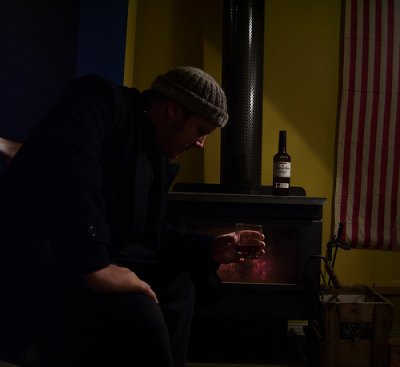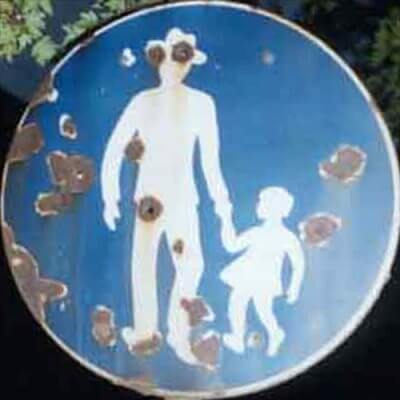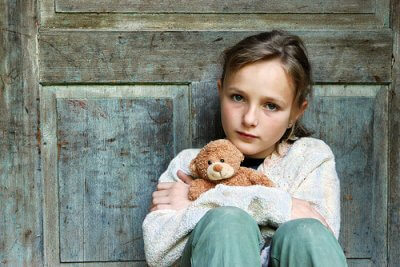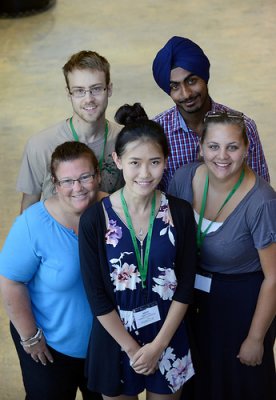What Are Adverse Childhood Experiences (ACEs)?
by Andrea M. Darcy
We all go through stress as a child. Our parents yell at us or let us down, we fail at something that we cared about, or we have to move house or lose a friend. These experiences help us grow and become resilient.
But adverse childhood experiences are not something a child can just bounce back from. They are too overwhelming and scary, or they are situations that see a child lacking any real support.
What are Adverse Childhood Experiences (ACEs?)
Adverse childhood experiences (ACEs) are an identified set of ten ongoing traumas that set up a child to have health and social difficulties as an adult.
ACEs grew out of a large-scale American public health research study, the Adverse Childhood Experiences Study (ACE study). The idea for the study was triggered when a doctor running an obesity program discovered that most of his clients had suffered childhood sexual abuse. Why was there not more research on the link between difficult childhoods and health problems?
The result of this lightbulb moment was eventually an ongoing survey, the bulk of which took place between 1995 to 1997. Over 17,000 people with health problems were asked about their childhoods. These subjects are still under ongoing surveillance, as we learn more and more about what childhood adversity means not just for adult health, but for our very mortality.
What sorts of traumas are considered ACEs?
The original ACE study looked at the following 10 adverse experiences:
- parents divorcing or separating
- living with a parent who is depressed or suffers mental illness
- living with a parent who is an addict (alcohol, drugs, or otherwise)
- witnessing your mother being abused or mistreated
- verbal abuse/emotional abuse and humiliation
- emotional neglect
- physical neglect
- physical abuse
- sexual abuse
- a family member going to jail.
It’s actually common to have a few or several ACEs over just one. Over 12% of participants in the original study, for example, scored four or higher.
Since the study, other research suggests that other traumatic experiences should be taken into account, including:
- the death of a parent
- growing up in poverty or in a violent community
- watching a sibling be abused
- being bullied by a classmate or teacher.
Can I take the ACE test?
The original study has been boiled down to a ten question test used by some American institutions and also widely available across the internet.
The World Health Organisation has also since developed a more comprehensive WHO ACE screening questionnaire with 43 items that actually includes peer bullying and exposure to community violence.
Why are ACEs so powerful?

By: Lachlan Hardy
Experiencing ongoing adversity as a child affects the development of your brain and the way your body reacts to stress.
If there was a ‘body stress thermostat’, it’s as if too many ACEs put the setting on a permanent high.
A high stress response means you are more likely to to engage in behaviours that put your health at risk, such as smoking, promiscuity, and substance abuse.
You are also more likely to suffer from anxiety and depression.
The study found a shocking three thousand per cent increase in attempted suicide when looking at the statistics of those ranking with over six ACEs.
If your body is constantly swamped with stress hormones it results in your body’s inflammatory response being too high. And science shows that inflammation is a leading cause of many long-term illnesses.
In fact the ACE study connects growing up in a difficult household and being treated poorly to chronic disease that includes cancer, heart disease, stroke, and diabetes.
Things to Keep in Mind About ACE scores
The ACE study simply links illness in adulthood to childhood difficulties. It does not at all prove it is the only reason we get ill as adults. Nor is a a high ACE result a guarantee you’ll be sick anytime soon.
Our bodies are unique, complicated machines and different people respond differently, even to trauma and stress. And genetics, and things like exposure to toxins, also cause illness.
Plus, there are things that help some of us develop resilience despite ACEs. This could be counteractive positive childhood experiences, or support from outside the home, such as a committed and caring teacher or family friend.
In fact many people who have difficult childhoods somehow thrive. Possible reasons for this that researchers are looking at include the differences in the ways males and females respond to stress, and how differences in genetic coding affect how each child will react to stress.
For example, new research points to a possible ‘sensitivity gene’, which can be beneficial if we are raised in supportive environments, but lead to to anxiety and neuroticism otherwise.
It is possible to conclude, however, that ACEs could make a genetic inclination to illness more likely to trigger.
Hope Despite a High ACE Score?
The last decades of research have finally crystallised a long-held hypothesis that the brain is actually plastic – it can change and regroup. So even if your ACE score is high, and your brain is affected by trauma, improvements are possible.
Talk therapies can help, especially those that create a strong connection between client and therapist, like schema therapy.
And new types of therapeutic interventions are being proven to help the brain’s plasticity and counter the effects of trauma even where other forms of therapy have failed.
Some of these tools are now being integrated into ‘third wave therapies‘. These tools include:
- eye movement desensitisation and reprocessing (EMDR)
- mindfulness
- visualisation
- bodywork/ body psychotherapy
- meditation and yoga.
Would you like to work with a therapist who has experience helping clients with adverse childhood experiences? Harley Therapy puts you in touch with therapists at several central London locations. Or try our UK-wide site for therapists who offer online therapy.
Still have a question about ‘what are adverse childhood experiences?’ Post below in the comment box.
 Andrea M. Darcy is a mental health and wellbeing expert and personal development teacher. With training in person-centred counselling and coaching, she often writes about trauma and relationships. Find her on Instagram @am_darcy
Andrea M. Darcy is a mental health and wellbeing expert and personal development teacher. With training in person-centred counselling and coaching, she often writes about trauma and relationships. Find her on Instagram @am_darcy








Hi…sir.
My 7 year old daughter behaves on a weird way. I couldn’t find the reason.she gets upset for all little reasons. She imagines worst things about small issues.
We have been changing countries for the past 5 years. She says she feels lonely and doesn’t have a friend . She is not comfortable with me.
I’m worried. How could I help her?
Hello, it could be that all the change is causing her anxiety. Children tend to require structure to feel safe and secure. Do what you can to build structure into her daily routine and to reassure her she is safe and secure. What do you feel the reasons are that she is not comfortable with you? Is it as she does not trust you? It’s possible that because life changes so much there are so many surprises she can’t trust you. If you feel worried about your parenting, do know that you can always speak to a counsellor about this.
I feel my daughter has been affected by four adverse childhood experiences. She is twenty now and has shown signs of this for many years . She is also obese so I worry about her emotionally and physically. I have had her in many different types of councelling but I don’t feel these have helped . What type of councelling would help her best for ace ? Please email me a response I would be so greatful. I really need to help her . She deserves to be helped . Thank you so much
Hi Grace it’s lovely to see how much you care and are helping. Now your daughter is 20, however, as an adult she has to be the one deciding to go to therapy. Therapy rarely works unless the client willingly goes and wants to be there. So just to say that first. Secondly, there are over 100 kinds of therapy nowadays, and this isn’t enough information for us to tell you the ‘best therapy’ unfortunately. ACE is a very broad situation. But if she shows signs of trauma then some forms of therapy can make that worse, and there is some argument to suggest it’s best she starts with forms of therapy to help her stablise, such as cognitive behavioural therapy, CBT, where you do not dive into the past but instead work at stabilizing your thoughts and moods. Another useful therapy could be Compassion-focused therapy. But if there was sexual abuse then it might be better to look to schema therapy or dialectical behaviour therapy. Again, we can’t say as we don’t know enough. Finally, it’s not only just about the type of therapy but the therapist him or herself. The therapist-client relationship is very important and part of the reason therapy works or doesn’t. Your daughter has to work with a therapist she, not you, feels she likes and can one day trust (very few clients trust therapists off the top as they generally have trust issues hence they are in therapy). And she needs to know that that therapist is not talking to you. Now she is twenty, whatever happens in therapy should remain between her and the therapist, it’s her experience. Another person trying to know what is happening during another adult’s sessions not only breaks the code of ethics a therapist should be committed to, it means therapy won’t work as there is no real trust. Hope that helps.